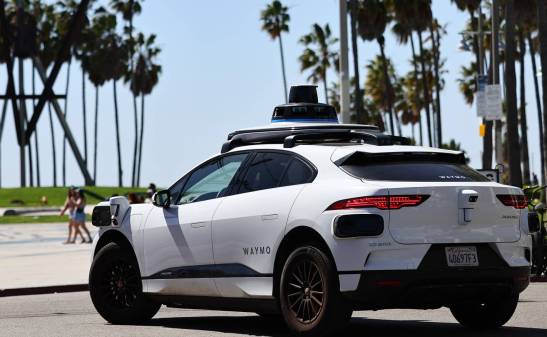Indiana threatens ‘outlier’ status with its own legislation on autonomous vehicles

A bill that would create an application process for autonomous vehicle operation in Indiana and establish the state as a welcoming environment for companies is catching heat from some stakeholders, who argue that state-led regulations could create a “Balkanized” environment, nationally.
House Bill 1341, introduced just over a month ago to the Indiana House of Representatives, would allow for any licensed individual who receives approval from a state taskgroup to operate an autonomous vehicle, while also prohibiting any local or state legislation from restricting that privilege.
The bill stipulates that the taskgroup would be given “emergency rulemaking authority,” or the ability to decide who can put an autonomous vehicle on the road. The group, composed of elected and appointed officials — including the commissioners or chief of staffs of the Bureau of Motor Vehicles, Insurance Department, Transportation Department and State Police, as well as county and town executives — would evaluate applications and operation protocols submitted by those who wish to drive an AV.
At a hearing on Tuesday, stakeholders had an opportunity to listen to the bill’s author, Rep. Ed Soliday, and share their concerns over the bill at in front of the Indiana House Roads and Transportation Committee.
One concern was that localities wouldn’t have a voice. But the bill’s preemption of local governments passing their own ordinances or measures regulating AV would be checked by the presence of local officials on the taskgroup.
“We can’t have a different law for Indianapolis and a different law for Fort Wayne — there needs to be some continuity,” Soliday said. “If the testing or operation [of an automated vehicle] involves a city, that mayor would be on the [taskgroup] to approve.”
The mayor would also have the ability to revoke testing or operating privileges, Soliday said. He added that operating permits are rarely revoked, with most issues resolved by a call to the manufacturer to see what went wrong.
Soliday hedged his legislation in front of the committee with a call to action for the federal government.
“One group asked for a sunset on the bill,” Soliday said, “and the sunset we put in the bill was when the federal government does its job and creates standards, our stuff goes away.”
Soliday added that the $5 million AV operators must have in insurance or other funds under the new bill is also a stopgap until the federal government establishes safety standards. Currently, autonomous vehicle legislation is stagnant in congress. Lawmakers and stakeholders have said their main concern is safety — a concern shared by witnesses testifying against HB 1341 as well.
“Sure, they can recognize a three-, four-, five-thousand pound car in front of them, but how are they going to react when they come into a construction zone?” Todd Vandermyde, a labor union representative asked the committee.
Other witnesses brought up the damage that Indiana could do to itself and other states by regulating itself independently of the federal government.
The Self-Driving Coalition for Safer Streets, a group founded by Google, Uber, Lyft, Volvo and Ford to work with lawmakers on policy solutions for AV technology, did not lend their support to the bill for this reason.
“The licensure requirement in Level 4 and Level 5, outside the operating domain, would foreclose the ability of a number of companies to actually be able to operate these systems,” SDCSS spokesperson and former NHTSA Administrator David Strickland told the committee. Level 4 is a “high automation” vehicle and Level 5 refers to a fully autonomous vehicle.
“The current federal motor vehicle safety standards and the system that enforces them is in the purview of the federal government … it’s been that way for over 50 years and it’s been very successful, the reason being that we can have one manufacturing environment for compliance and make sure that these vehicles actually do meet standards,” Strickland said. “If we have states become super regulators or compliance officers, as HB 1341 creates, we’re going to create a Balkanized environment which is going to slow down, or possibly even impede, the deployment of these vehicles.”
Strickland stressed the federal government’s concern and care over federal motor vehicle standards, noting that should Indiana decide to pass HB 1341 and create their own legislation, it would render them an “outlier” in the AV testing community and send them in the wrong direction as far as safe testing and deployment goes.
This story was updated on April 9, 2018 to reflect that Rep. Ed Soliday presented his bill before the House Roads and Transportation Committee.






